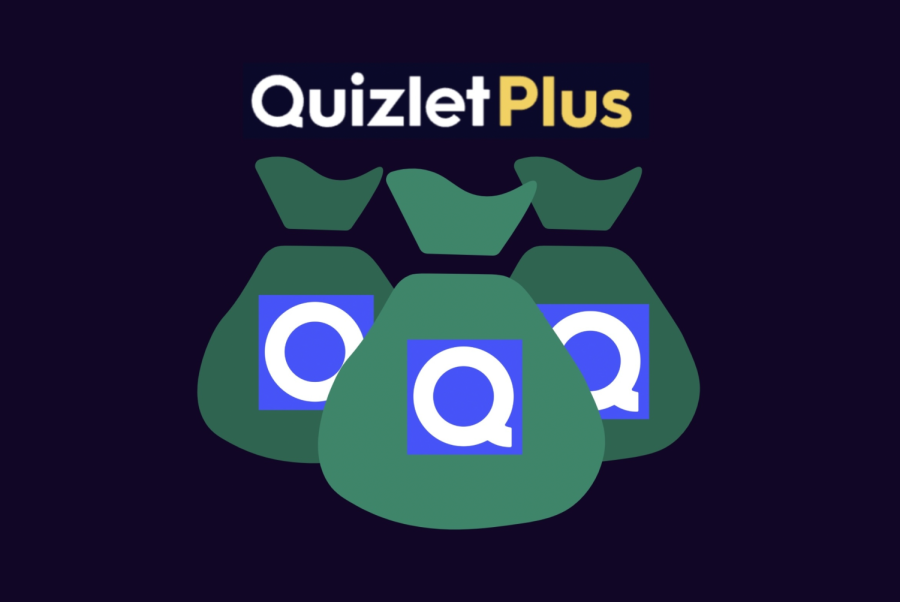Opinion: Quizlet needs to be more accessible
Credit: Genevieve Morrison
WSPN’s Selena Liu discusses Quizlet’s decision to lock most of its features behind a paywall.
November 15, 2022
Whether I was learning the different parts of the cell in freshman year biology, memorizing the seven strong acids in sophomore year chemistry or studying for my vocabulary test in junior year English, I found Quizlet to be an incredibly reliable study tool.
Although Quizlet’s functions are not the most complex, they are incredibly useful to middle school, high school and college students since they effectively digitize flashcards. Instead of finding a person to quiz them, students can type their responses into a program that automatically grades them.
Not only could I create my own digital flashcards to flip through, but I could also utilize the software’s various study tools, playing games to reiterate my understanding of the content. Instead of creating flashcards by hand, which is an incredibly tedious and time-consuming task, students have the ability to create their own set online through typing.
So at the start of this school year, I was absolutely devastated, along with the other 60 million other monthly users, to discover that a majority of Quizlet’s features had been locked behind an outrageously-priced Quizlet Plus.
Why am I being charged $7.99 a month – which amounts to $95.88 a year – to access such basic features on flashcard sets that I created? I was the one who sat there for hours creating the set, and I’m the one being forced to pay to study with them? That is unbelievably ridiculous.
For years, I was willing to bear the annoying pop-up advertisements and mandated videos that appeared multiple times, not only at the start and end of study sessions, but also in the middle. With its millions of active users and overwhelming amount of advertisements, I would’ve hoped that the money-hungry company would be satisfied with its profits.
Currently, for each study set, there are only two free features that remain. Flashcards gives students the ability to flip between the term and the definition, and match is a game that allows students to match the definition with the term. The rest of the features are either completely inaccessible or only offer a limited number of free rounds. Unfortunately, the only two completely free features don’t allow students to deeply understand the material. Merely glancing at a term and its definition doesn’t lead to the long term memorization and comprehension required to do well on a test.
The company’s decision to exploit the natural need of students to study is appalling. Students are a group of people known to be financially troubled. Most middle and high school students are living at home without a job, and many college students are in paralyzing amounts of debt. Yet here we are, stripped of an important resource.
The group that is most impacted by Quizlet’s shift in accessibility is low-income students. Especially since the world has just lived through a pandemic, many families do not have the ability to set aside a large amount of money to pay for such a commodity as Quizlet Plus. They have more important priorities, which include paying for mortgage, electricity and water bills, saving for retirement and paying off student loans and other various debts.
Learning resources as impactful as Quizlet are a necessity for students. As I turn away from Quizlet to use other websites and studying methods, I hope they feel the same betrayal that I felt earlier this school year.





![Last Wednesday, the Wayland School Committee gathered to discuss a number of topics regarding the health curriculum and Innovation Career Pathway course. Another large topic of conversation was the ways to potentially mitigate distracting cell phone usage. "These [phones] are going to distract your learning and social relationships," Superintendent David Fleishman said. "That's concrete right there."](https://waylandstudentpress.com/wp-content/uploads/2025/06/Screenshot-2025-06-04-at-9.49.31 PM-1200x886.png)



























![Troy Hoyt finishes the Boston Marathon, running for the Hoyt Foundation. T. Hoyt is the son of Hoyt Foundation CEO Russ Hoyt.
“[Running a marathon] might seem like a big thing, when it’s presented to you at first, but if you break it up and just keep telling yourself, “Yes, you can,” you can start chipping away at it. And before you know it, you’ll be running the whole 26 miles, and you won’t even think twice about it.” T. Hoyt said.](https://waylandstudentpress.com/wp-content/uploads/2025/04/C36E8761-1CBB-452E-9DF2-543EF7B1095E_1_105_c.jpeg)














































